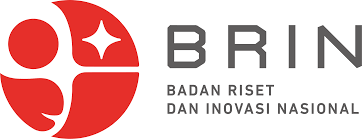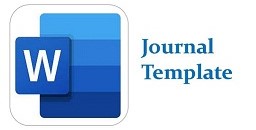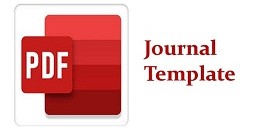A Comparison of John Dewey and E. D. Hirsch's Thoughts on Determining Quality Educational Goals
DOI:
https://doi.org/10.58355/competitive.v2i3.35Keywords:
John Dewey,, E. D. Hirsch, , Educational Goals,, Progressive Education Theory, , Cultural LiteracyAbstract
This paper explores the views of John Dewey and E. D. Hirsch on determining quality educational goals, and compares the similarities and differences between their approaches. The main objective of this research is to provide a comprehensive understanding of the two prominent educational theorists and their ideas on quality educational goals, and to examine how their approaches differ and overlap. To achieve this objective, the research methodology adopted in this study is a comparative analysis of the two thinkers' views on education. The study begins with a thorough review of the literature on the educational theories of Dewey and Hirsch, followed by a comparative analysis of their approaches. The comparative analysis includes an examination of their perspectives on curriculum development, experiential learning, cultural literacy, and knowledge-based education. The data collected from the literature review and comparative analysis is then synthesized to develop a comprehensive understanding of the similarities and differences between Dewey and Hirsch's approaches to determining quality educational goals. The findings of this research suggest that while Dewey and Hirsch's approaches differ in their emphasis on experiential learning versus cultural literacy, they share a common goal of providing a quality education that prepares students for active and engaged citizenship. Additionally, both Dewey and Hirsch emphasize the importance of effective curriculum development and individualized learning. Education policymakers and practitioners can draw on the insights provided by this research to develop a holistic approach to education that incorporates the strengths of both Dewey and Hirsch's perspectives.
Downloads
References
Eaglestone, R. (2020). ‘Powerful Knowledge’, ‘Cultural Literacy’ and The Study of Literature in Schools. Impact, 2020(26), 2–41. https://doi.org/10.1111/2048-416X.2020.12006.x
Ellerton, P. (2022). On critical thinking and content knowledge: A critique of the assumptions of cognitive load theory. Thinking Skills and Creativity, 43, 100975. https://doi.org/10.1016/j.tsc.2021.100975
Hickman, L. A., & Alexander, T. M. (1998). The Essential Dewey, Vol. 2: Ethics, Logic, Psychology. Indiana University Press.
Hirsch, E. D. (1999). The Schools We Need: And Why We Don’t Have Them. Doubleday.
Huang, H. (2002). Toward Constructivism for Adult Learners in Online Learning Environments. British Journal of Educational Technology, 33(1), 27–37. https://doi.org/10.1111/1467-8535.00236
Kuckartz, U. (2019). Qualitative Text Analysis: A Systematic Approach. In Compendium for Early Career Researchers in Mathematics Education (pp. 181–197). Springer. https://doi.org/10.1007/978-3-030-15636-7_8
Little, T. (2013). 21st Century Learning and Progressive Education: An Intersection. International Journal of Progressive Education, 9(1), 84–96.
Lolang, E., Rais, R., Oualeng, A., & Prayitno, M. A. (2023). Analysis of Educational Messages in The Lion King Movie: Perspectives on Character Education and Environmental Conservation. Competitive: Journal of Education, 2(2), 122–130.
Maine, F., Cook, V., & Lähdesmäki, T. (2019). Reconceptualizing Cultural Literacy as A Dialogic Practice. London Review of Education, 17(3), 383–392. https://doi.org/10.18546/LRE.17.3.12
Mohamed, N. (2020). The Debate Between Traditional and Progressive Education in Light of Special Education. Journal of Thought, 54(3/4), 43–54.
Ord, J. (2009). Experiential learning in youth work in the UK: a return to Dewey. International Journal of Lifelong Education, 28(4), 493–511. https://doi.org/10.1080/02601370903031355
Pondiscio, R. (2014). There Are No Shortcuts: Mending the Rift between Content Knowledge and Deeper Learning. In Knowledge at the Core: Don Hirsch, Core Knowledge, and the Future of the Common Core (pp. 48–62). Thomas B. Fordham Institute.
Prayitno, M. A. (2023). Getting to Know the Term of Class Size Reduction (CSR) and Its Positive Impact in The World of Education (Historical Review). Competitive: Journal of Education, 2(2), 103–112.
Provenzo, E. F., & Apple, M. W. (2015). Critical Literacy: What Every American Needs to Know. Routledge.
Sahm, C. (2016). The Bronx is Learning: Content-rich Curriculum Drives Achievement at Icahn Charter Schools. Education Next, 16(4), 8–15.
Shah, R. K. (2020). Concepts of Learner-Centred Teaching. Shanlax International Journal of Education, 8(3), 45–60.
Tarrant, S. P., & Thiele, L. P. (2016). Practice Makes Pedagogy – John Dewey and Skills-based Sustainability Education. International Journal of Sustainability in Higher Education, 17(1), 54–67. https://doi.org/10.1108/IJSHE-09-2014-0127
Ultanir, E. (2012). An Epistemological Glance at the Constructivist Approach: Constructivist Learning in Dewey, Piaget, and Montessori. International Journal of Instruction, 5(2), 195–212.
Williams, M. K. (2017). John Dewey in the 21st century. Journal of Inquiry and Action in Education, 9(1), 91–102.
Downloads
Published
How to Cite
Issue
Section
License
Copyright (c) 2023 Darmawati.R, Mustofa Aji Prayitno, Moh. Solehuddin, Baso Intang Sappaile, Didik Cahyono

This work is licensed under a Creative Commons Attribution 4.0 International License.















